News from Maison de la Gare
Moussa's Story
Tweeter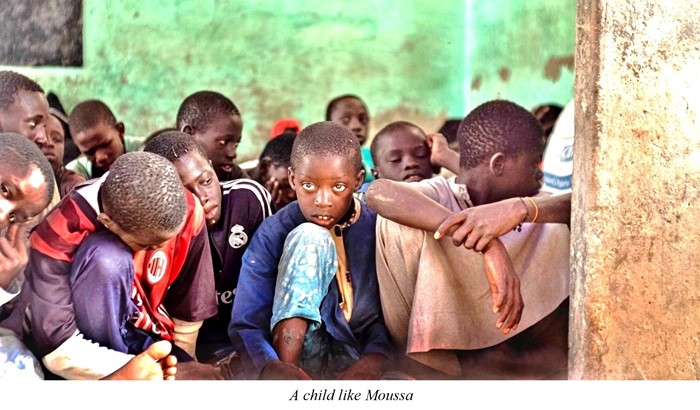
Hope for a child who could have lost all hope
This is the story of young Moussa, a child born out of wedlock whose mother secretly entrusted
him to an old shepherdess 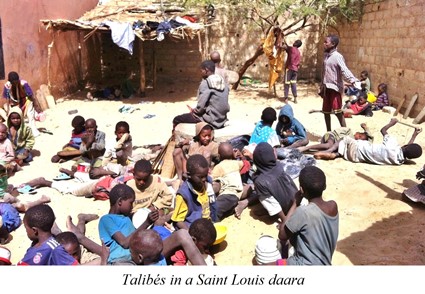 living in a remote Senegalese village. When the shepherdess died, the
seven-year-old child was entrusted to the marabout Issakha. This crooked, deceitful, cynical
marabout was against the teaching that had been brought to Senegal by the whites, and he rejected
all scientific and technical progress. He lived off the begging of his talibés, obtaining from
them all his needs in life without scruples or moral modesty.
living in a remote Senegalese village. When the shepherdess died, the
seven-year-old child was entrusted to the marabout Issakha. This crooked, deceitful, cynical
marabout was against the teaching that had been brought to Senegal by the whites, and he rejected
all scientific and technical progress. He lived off the begging of his talibés, obtaining from
them all his needs in life without scruples or moral modesty.
All this man’s wealth came from the alms and the exploitation of his talibés. These poor children
squatted in the streets to beg for their daily quota of money and, during the
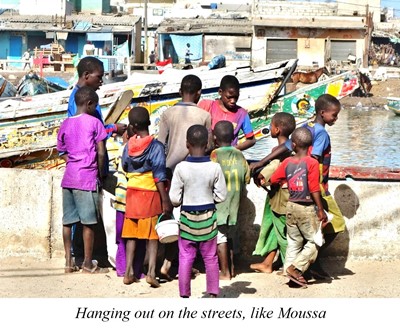 rainy season, they
became agricultural workers and toiled in his fields. They were little slaves in the wicked
marabout Issakha’s huge plantation.
rainy season, they
became agricultural workers and toiled in his fields. They were little slaves in the wicked
marabout Issakha’s huge plantation.
Every day, the children had to leave the daara at dawn to go to work, or to the streets to beg,
and they returned only in the evening, at dusk. When young Moussa was in the field for the first
time holding a work tool, his small hands bled. He was clumsy and unfit for such a chore.
The marabout became furious with Moussa, whom he called a scoundrel. He hit him violently
on the back. Moussa collapsed, and a second blow made him roll on the muddy ground. Moussa
stayed on the ground for a long time, completely shaken. After a few hours,
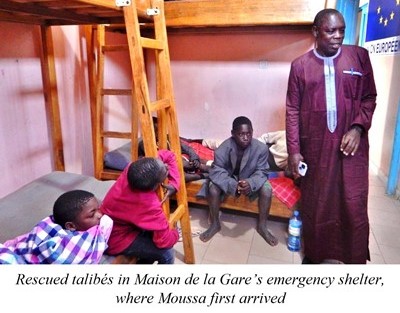 he got up painfully
and walked away slowly. This was his first time running way from his daara.
he got up painfully
and walked away slowly. This was his first time running way from his daara.
Moussa was found by one of the “grands talibés” from marabout Issakha’s daara and was returned to
the daara. He continued in this way for many years, begging and working in the fields, and running
away when he could no longer tolerate the conditions.
He finally ran away for good, begging on the streets to support himself. He fell in with a group
of boys like himself on the streets. A series of events led to them all being caught in a
police sweep.
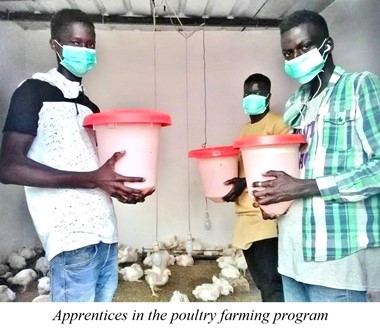
The police referred Moussa to Maison de la Gare, well known to them as a local non-governmental
organization working to improve the living conditions of talibé children, with the financial
support of external partners and donors.
Moussa is now registered for six-months of training in Maison de la Gare’s poultry farming
apprenticeship program. Cheikh Ablaye, who leads this program, will support Moussa during his
training, helping him to be ready to become independent and self-supporting. When he has
completed his apprenticeship, Moussa will take the training offered by Maison de la Gare’s
microfinance program, with the objective of being ready to obtain a loan to start his own
operation raising and selling chickens.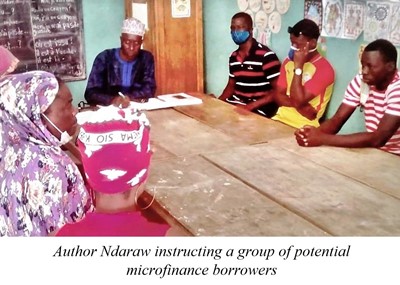
_______________
The author Baye Ndaraw Diop was formerly the director of the Ministry of Justice’s Saint-Louis
office responsible for street children. He has been a member of Maison de la Gare’s Board of
Directors since 2013 and has led our microfinance program since its inception. Moussa’s name and
other details in this report have been changed to protect the child.

